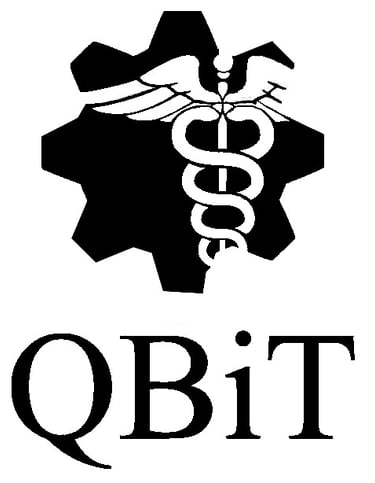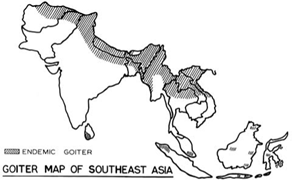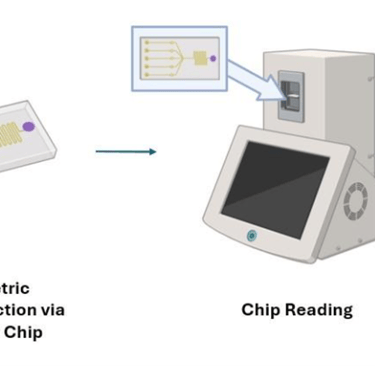Iodetect
In collaboration with the Queen's Biomedical Innovation Team, I am leading a project involving a portable microfluidic chip-based test designed to detect iodine deficiency.
This project is currently in progress.
Collaborators: Queen's Biomedical Innovation Team members


Iodetect is a microfluidic diagnostic platform designed to measure urinary iodine concentration (UIC) as a low-cost, field-deployable method to assess iodine deficiency and excess in populations. This project addresses the pressing global health challenge of iodine imbalance, which affects thyroid function and child development, with a particular focus on Nepal where both deficiency and excess remain concerns despite salt iodization programs.


Figure 1 - Map displaying regions with large amount of goiters, a common side effect of iodine deficiency.
The system is built around a microfluidic chip that processes urine samples using the Sandell–Kolthoff reaction, generating a colorimetric signal that indicates iodine concentration. The chip is coupled with a handheld spectrophotometer sensor for measurement and a software interface for displaying results and mapping population data.
The project is divided into four subteams:
Biochem Team: Optimized iodine detection reactions and produced test samples.
Physical Team: Designed and prototyped the microfluidic chip, fluid handling, and 3D-printed casing.
Electrical Team: Built sensor circuitry, power management, and Bluetooth/Wi-Fi connectivity.
Software Team: Developed algorithms, user-friendly UI, and potential cloud integration for data tracking.


Figure 2 - Flowchart overview of the full system
This interdisciplinary project demonstrates the feasibility of a portable, accessible diagnostic tool that could be deployed in the field to monitor iodine status. Beyond local impact in Nepal, the system has potential for global health applications, ensuring healthier thyroid function and child development outcomes worldwide.
